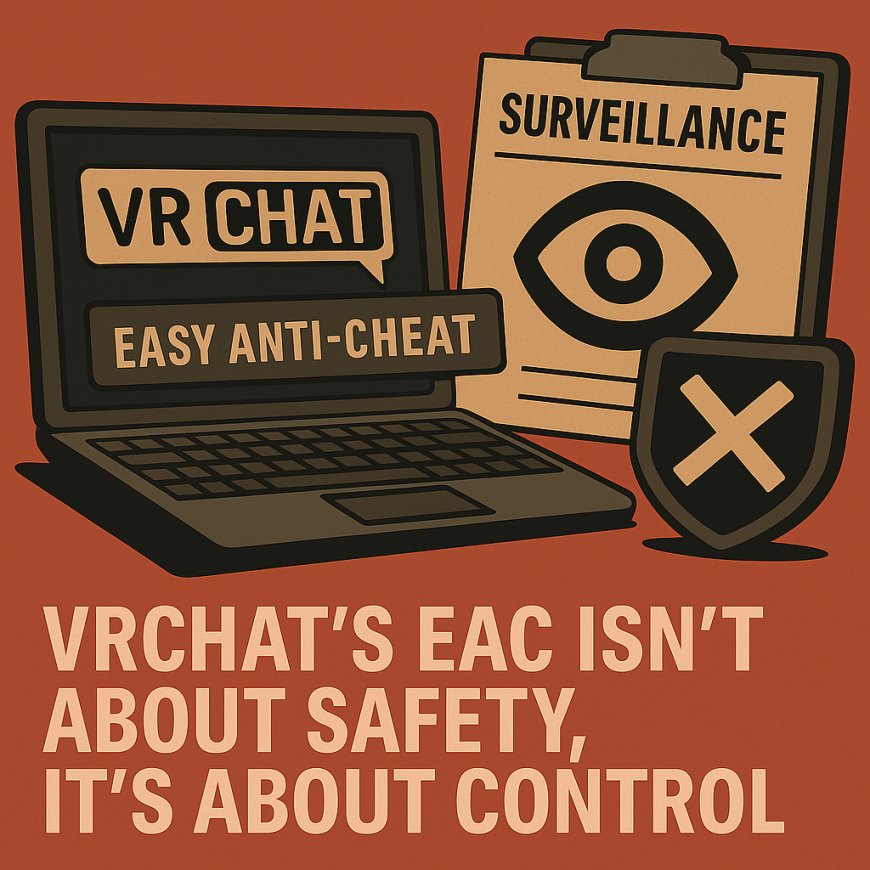VRChat’s EAC Isn’t About Safety, It’s About Control
VRChat implemented Easy Anti-Cheat claiming it was for safety. Instead, it broke accessibility, punished modders, and failed to stop predators. This article exposes how EAC became a tool of control, not protection.

Intro When VRChat implemented Easy Anti-Cheat (EAC), they claimed it was about safety. About stopping crashers, abusers, and malicious mods. But what they really installed wasn’t safety. It was control.
What EAC Really Does EAC runs at kernel level. That means it has deeper access to your PC than VRChat itself. It can see what you run, what you inject, what you debug. It doesn’t care if your mods are harmless. It doesn’t ask if your tweaks help you walk, hear, or cope. It just stops you.
Mods that helped people with PTSD? Gone. Shaders that made the game playable for neurodivergent users? Broken. Accessibility tools for private instances? Blocked.
VRChat didn’t target predators. They targeted anyone who dared to modify their experience.
Why EAC Was Added Crashers were real. Mods that broke instances or tracked users needed to go. But instead of investing in server-side protections or real moderation, VRChat took the shortcut: install a surveillance-grade tool and pretend the problem was solved.
What It Actually Did
-
Increased game loading times, frustrating users with slower systems or neurodivergent conditions sensitive to delay.
-
Blocked legitimate modding communities.
-
Gutted accessibility for disabled users.
-
Removed tools that protected users from stalking or harassment.
-
Didn’t stop predators, just broke the tools people used to stay safe.
It Gets Worse EAC doesn’t just run in VRChat. It hooks into your operating system. It watches. It checks for any “unauthorized behavior,” even outside the game scope. It creates a culture of fear, where modding is treated like criminal behavior.
And for what? Crashers are still around. Predators are still hiding. Users trying to help themselves are still being punished.
The Fallout After EAC rolled out, users flooded review platforms with backlash. Steam’s review section turned red overnight. Posts criticized the loss of accessibility, privacy, and freedom.
Thousands of users left VRChat, many migrating to ChilloutVR, a platform that openly supports modding and customization. The move wasn’t just about preference. It was about trust. VRChat lost it, and ChilloutVR became a symbol of resistance.
Conclusion VRChat didn’t make their platform safer. They just made it quieter. Less modded. Less free. Less human.
And EAC? It wasn’t a fix. It was a leash.
What's Your Reaction?
 Like
0
Like
0
 Dislike
0
Dislike
0
 Love
0
Love
0
 Funny
0
Funny
0
 Angry
0
Angry
0
 Sad
0
Sad
0
 Wow
0
Wow
0


















